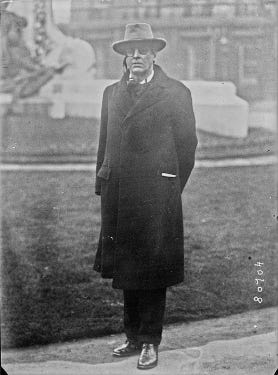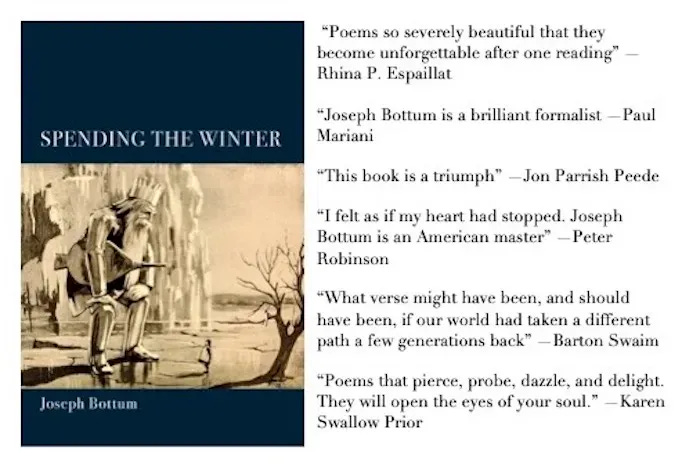
The Wild Swans at Coole
by William Butler Yeats
The trees are in their autumn beauty, The woodland paths are dry, Under the October twilight the water Mirrors a still sky; Upon the brimming water among the stones Are nine-and-fifty swans. The nineteenth autumn has come upon me Since I first made my count; I saw, before I had well finished, All suddenly mount And scatter wheeling in great broken rings Upon their clamorous wings. I have looked upon those brilliant creatures, And now my heart is sore. All’s changed since I, hearing at twilight, The first time on this shore, The bell-beat of their wings above my head, Trod with a lighter tread. Unwearied still, lover by lover, They paddle in the cold Companionable streams or climb the air; Their hearts have not grown old; Passion or conquest, wander where they will, Attend upon them still. But now they drift on the still water, Mysterious, beautiful; Among what rushes will they build, By what lake’s edge or pool Delight men’s eyes when I awake some day To find they have flown away? ═══════════════════════
Dating from early 1917, this title poem of the 1919 edition of The Wild Swans at Coole appears alongside such other famous poems by William Butler Yeats (1865–1939) as “The Scholars” and “An Irish Airman Foresees His Death.” As Phil Klay has observed, writing on the latter poem for the New York Sun, a “darker, more muted register” informs this whole work by an aging poet. Exhausted by the specter of violence, both worldwide and in Ireland, with its Easter Uprising of 1916, and rejected in love by the Rising’s icon, Maude Gonne, and her daughter Iseult, the Yeats of this book is sadly “knowing . . . maybe even too knowing.”
“The Wild Swans at Coole,” written when Yeats was fifty-one, begins in the grief of a phase of life when a man might start to feel that he has lived too long and known too much. Set in autumn, the poem observes the cyclical nature of time, with its fixed course of seasons. Paradoxically, it also observes a reality which seems to move outside the human conception of time, with the individual’s sense of being caught in it — perhaps by the very fact of his human individuality — and carried on its current to his end.
This larger reality finds expression both in the forward impulse of the stream and the comings and goings of the swans. The swans’ migratory movements are themselves paradoxical: cyclical as the seasons, yet not being human or individual, the swans as a corporate entity seem to go on eternally. They can enter the current of the water but not be swept helplessly along with it; their paddling is a signal of their agency, their power to navigate with or against that force.

Time changes everything in the man’s vision and experience, but it cannot change the swans, who operate by other mysterious and alien rules. The poem’s form — each sestet composed of a common-meter quatrain and a resolving line in trimeter, a pattern disturbed by the intrusion of pentameter in each stanza’s fifth line — echoes this chafing sense of paradox and double reality.
The man on the shore, aware of the familiar autumn which has come round again for the nineteenth time in that familiar place, intuits his own mutability and mortality. Though he stands in a fixed place observing movement, it’s he himself, not the swans, who will one day have “flown away,” to see them no more. Or perhaps death itself is a fixity, the stoppage of the human apprehension of time, while life departs to live itself elsewhere.
Either way, the swans, free of self-consciousness and the attendant awareness of death, appear immortal. “Their hearts have not grown old.” In due course they will “delight men’s eyes” on some other shore, to which they, in their freedom from the individual depredations of time and mortality, will have wandered.






The words about the poem are rather wonderful, too.
I was half awake when I first read this and after I was done reading your commentary I was puzzled for a nanosecond about why I didn't remember the poem. But then my flighty brain went elsewhere. Glad someone reminded you, and I now can read the poem and commentary together.